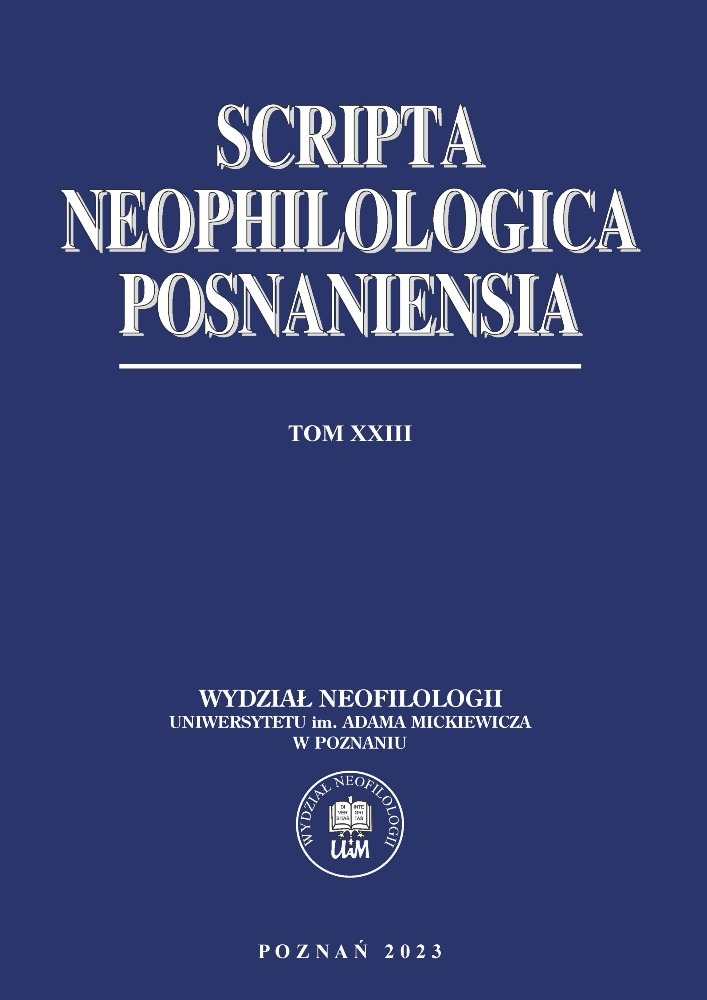Abstract
The context of Russia–Ukraine war has given sufficient reasons to consider any standpoint of argumentation significant and potentially groundbreaking in dealing with threat and conflict. This article reports the findings of a pragma–dialectical study of argumentative indicators in the adjudication of a Russia–Ukraine dispute which mark the judgement–based understanding and arguments–infused processes that give solid grounds to establish the strategy of dealing with war. Linguistic choices in the form of argumentative indicators constitute keystones in the critical discussion, allowing the reconstruction and identification of speech act moves that are to be found in the patterned route of argumentation. As this analysis shows, the organisation of FTAs parameters and propositional attitude indicators significantly contribute to the sequentiality and complementariness of the argumentation process which proves to be highly effective and reasonable. Given the specificity of an adjudication as a type of a genre, its judiciary contextualisation, and legislative power, it is suggested that this argumentative practice makes for a threat and risk management strategy.
References
Adger, W.N. (2000). “Social and ecological resilience: are they related?”. Progress in Human Geography 24, 347–364. DOI: https://doi.org/10.1191/030913200701540465
Bar–Tal, D., A.W. Kruglanski, Y. Klar (1989). “Conflict termination: an epistemological analysis of international cases”. Political Psychology 10(2), 233–255. DOI: https://doi.org/10.2307/3791646
Bitzer, L. (1968). “The rhetorical situation”. Philosophy and Rhetoric 1, 1–14.
Budzynska, K., F.H. van Eemeren, M. Koszowy (2014). “Preface: from pragmatics and dialectics to argument studies”. Studies in Logic, Grammar, and Rhetoric 36(49), 7–22. DOI: https://doi.org/10.2478/slgr-2014-0014
Cap, P. (2013). Proximization. Amsterdam: John Benjamins. DOI: https://doi.org/10.1075/pbns.232
Chovanec, J. (2010). “Legitimation through differentiation: discursive construction of Jacques Le Worm Chirac as an opponent to military action”. In: U. Okulska, P. Cap. (ed.) Perspectives in politics and discourse. 61–82. Amsterdam: John Benjamins. DOI: https://doi.org/10.1075/dapsac.36.07cho
Chruszczewski, P.P. (2011). “Research directions in anthropological pragmatics”. Styles of Communication 3(1), 48–70.
Crawford, S.E., E. Ostrom (1995). “A grammar of institutions”. American Political Science Review 89(3), 582–600. DOI: https://doi.org/10.2307/2082975
Dynel, M. (2018). Irony, deception, and humour. Berlin: de Gruyter. DOI: https://doi.org/10.1515/9781501507922
Foley, W.A. (1997). Anthropological linguistics. Hoboken, New Jersey: Blackwell Publishing.
Fortuin, E. (2022). “Ukraine commits genocide on Russians: The term “genocide” in Russian propaganda”. Russ Linguist 46, 313–347. DOI: https://doi.org/10.1007/s11185-022-09258-5
Jackson, S. (1992). “Virtual standpoints and the pragmatics of conversational argument”. In: F.H. van Eemeren, R. Grootendorst, J.A. Blair, C.A. Willard. (eds.) Argumentation Illuminated. 260–69. Amsterdam: SicSat.
Fuller, L.L., K.I. Winston (1978). “The forms and limits of adjudication author”. Harvard Law Review 92, 353–409. DOI: https://doi.org/10.2307/1340368
Kursani, S. (2022). “Beyond Putin’s analogies: The genocide debate on Ukraine and the Balkan analogy worth noting”. Journal of Genocide Research 6, 1–13. DOI: https://doi.org/10.1080/14623528.2022.2099633
Lees, E., O.W. Pedersen (2020). Environmental adjudication. Oxford: Hart. DOI: https://doi.org/10.5040/9781509931491
Lucy, W. ([1999] 2004). Understanding and explaining adjudication. Oxford: Oxford University Press. Martin, J.R., P.R.R. White (2005). The language of evaluation. New York: Palgrave Macmillan. Morrill C., P.C. Facciola (1992). “The power of language in adjudication and mediation: institutio-nal contexts as predictors of social evaluation”. Law and Social Inquiry 17(2), 91–212. DOI: https://doi.org/10.1111/j.1747-4469.1992.tb00610.x
Norris, F.H., S.P. Stevens, B. Pfefferbaum, K.F. Wyche, R.L. Pfefferbaum (2008). “Community resilience as a metaphor, theory, set of capacities, and strategy for disaster readiness”. American Journal of Community Psychology 41(1–2), 127–50. DOI: https://doi.org/10.1007/s10464-007-9156-6
Pickavance, J. (2016). A practical guide to construction adjudication. United Kingdom: Wiley Blackwell. DOI: https://doi.org/10.1002/9781118717912
Schabas, A. (2022). “Genocide and Ukraine: Do words mean what we choose them to mean?”. Journal of International Criminal Justice 20(4), 843–857. DOI: https://doi.org/10.1093/jicj/mqac042
Searle, J. ([1969] 1970). Speech acts. An essay in the philosophy of language. Cambridge: Cambridge University Press. DOI: https://doi.org/10.1017/CBO9781139173438
Thompson, G., L. Alba–Juez (2014). Evaluation in context. Amsterdam: John Benjamins. DOI: https://doi.org/10.1075/pbns.242
Van Eemeren, F.H., R. Grootendorst (1984). Speech acts in argumentative discussions. A theoretical model for the analysis of discussions directed towards solving conflicts of opinion. Dordrecht: Foris & Berlin: de Gruyter. DOI: https://doi.org/10.1515/9783110846089
Van Eemeren, F.H., R. Grootendorst (2004). A systematic theory of argumentation. The pragmadialectical approach. Cambridge: Cambridge University Press. DOI: https://doi.org/10.1017/CBO9780511616389
Van Eemeren, F.H., P. Outclassed, A.F.S. Henkermans (eds.) (2007). Argumentative indicators. A pragma–dialectical study. The Netherlands: Springer. DOI: https://doi.org/10.1007/978-1-4020-6244-5
Van Eemeren, F.H. (2010). Strategic maneuvering in argumentative discourse. Amsterdam: John Benjamins. DOI: https://doi.org/10.1075/aic.2
Van Eemeren, F.H. (2019). “Argumentative style: a complex notion”. Argumentation 33, 153–171. Van Eemeren, F.H., B. Garssen (2008). Controversy and confrontation. Amsterdam: John Benjamins. DOI: https://doi.org/10.1007/s10503-019-09478-y
Van Eemeren, F.H., B. Garssen, S. Greco, T. van Haaften, N. Labrie, F. Leal, P. Wu (2022). Argumentative style. Amsterdam: John Benjamins. DOI: https://doi.org/10.1075/aic.20
Hinton, A. (2022). Putin’s claims that Ukraine is committing genocide are baseless, but not unprecedented. The Conversation, 25 February 2022, http://theconversation.com/putins–claims–that–ukraine–is–committing–genocide–are–baseless–but–not–unprecedented–177511, date of access: 3 July 2023.
Greenberg, J. (2022.) Fact check: Putin says Russians face‘genocide’in Ukraine. WRAL.Com, 28 February 2022,https://www.wral.com/fact–check–putin–says–russians–face–genocide–in–ukraine/20163715/, date of access: 3 July 2023.
License
Copyright (c) 2023 Marta E. Strukowska

This work is licensed under a Creative Commons Attribution-NoDerivatives 4.0 International License.

